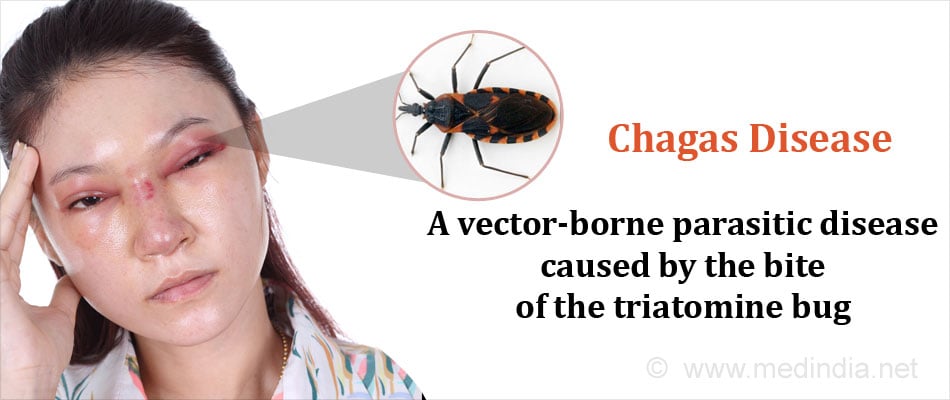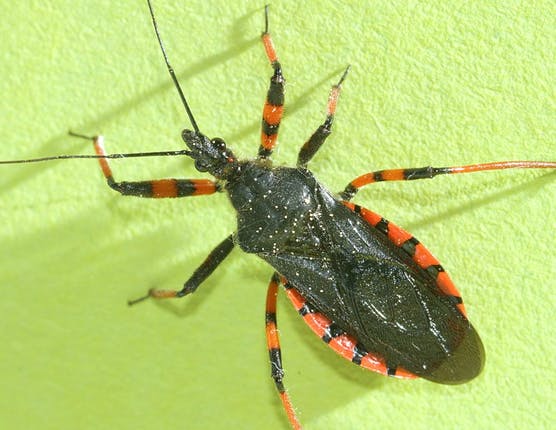
Posted on 12/21/2020 12:56:16 PM PST by Red Badger

Animal toxins are research targets owing to their therapeutic and biotechnological potential. Researchers at the Federal University of the ABC (UFABC), Federal University of São Paulo (UNIFESP) and Federal University of Ceará (UFC) in Brazil have discovered that VmCT1, an antimicrobial peptide isolated from the venom of the scorpion Vaejovis mexicanus, and its analogs kill Trypanosoma cruzi, the parasite that causes Chagas disease. Previous research has demonstrated VmCT1's potential against Gram-positive and Gram-negative bacteria, as well as tumor cells and other protozoans.
"VmCT1 contains 13 amino acid residues and displayed good selectivity and high potency against all three developmental phases of the protozoan Trypanosoma cruzi, the etiological agent of Chagas disease," said Vani Xavier de Oliveira Junior, a professor at UFABC's Center for Natural and Human Sciences and principal investigator for the study.
An article on the study is published in Parasitology, a journal owned by Cambridge University Press, and highlighted in the Cambridge Core Blog's Paper of the Month column. The study was supported by FAPESP.
"Not all species of scorpion are dangerous to humans," Oliveira said. "Venom from the genus Vaejovis affects only insects. On the other hand, it has potential therapeutic value because it contains several effective antimicrobial peptides, whose main role is defending the host."
Chagas is considered a neglected disease by the World Health Organization (WHO). It is endemic in several countries, affecting some 8 million people worldwide and killing around 10,000 per year.
"Treatment is currently available only in the form of two drugs that have severe side-effects and work only in the acute phase, when the patient may have few or no symptoms of the disease," Oliveira said. "This is why the search for novel medications is so important. Antimicrobial peptides are especially promising."
The researchers assessed the trypanocidal effect of VmCT1 and synthesized novel analogs with arginine substitutions in key positions to boost their biological action. Arginine is a positively charged amino acid and helps disrupt the parasite's membrane.
The results showed that the natural peptide was effective against all three phases of the parasite's development, while one of the analogs displayed both enhanced biological activity and better selectivity.
"In addition, we discovered that changes to physicochemical parameters influenced activity in the biological model, demonstrating that this kind of peptide reengineering can deliver more effective analogs than the native peptide," Oliveira said.
The selectivity of antimicrobial peptides to the pathogen relates to their cationicity, a trait that influences peptide-membrane interaction. According to the authors, the analogs with the positively charged amino acid arginine are more likely to interact with phospholipids in the membranes of microorganisms, promoting destabilization, disruption and/or permeabilization of the membranes.
"VmCT1 comprises a small peptide sequence, which helps obtain chemically altered molecules quickly and facilitates modulation between its biological activity and toxicity in human cells," said Cibele Nicolaski Pedron, a researcher at UFABC and first author of the article.
The trypanocidal activity was due to the formation of pores, evidenced by electron scanning microscopy. The damage done to the membranes by the peptides was significant, causing the death of parasites at levels not toxic to host cells.
"Our results demonstrate that VmCT1 and its arginine-substituted analogs are promising antiparasitic molecules that offer new prospects for the treatment of Chagas disease," said Alice Martins, a researcher at UFC and a co-author of the article.
The technological products developed in the study were registered with the National Industrial Property Institute (INPI), Brazil's patent and trademark office.


With more illegal immigrants to whom the the Democrats wish to grant entry here, the more of this we will have.
Disclaimer: Opinions posted on Free Republic are those of the individual posters and do not necessarily represent the opinion of Free Republic or its management. All materials posted herein are protected by copyright law and the exemption for fair use of copyrighted works.